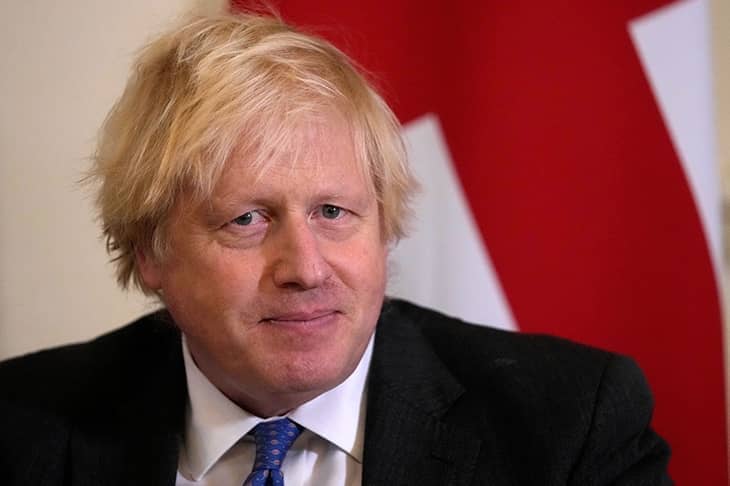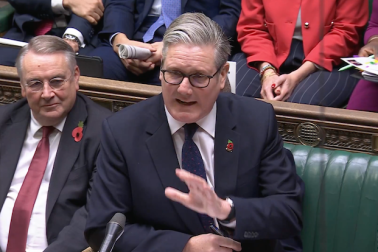What does the new year have in store for consumers — and families trying to make ends meet? A stumbling recovery at best, with a continuing tide of inflation that I predict will swiftly pass the Bank of England’s current forecast of ‘around 6 per cent by spring 2022’ and take much longer to turn than the Bank’s Cnut-like posturing seeks to suggest. And driving that surge will be the energy price spike, which could be the factor — far more potent than endemic sleaze and proven incompetence — that topples the Johnson regime.
Fact: wholesale natural gas prices have quadrupled in the past year. They may drop again in the medium term when the global interplay of demand, supply and geopolitical tension returns to something like its status quo ante; or they may not. In the meantime, barring alternative energy miracles, something has to give.
Either the supply industry, strapped by its regulatory price-cap, goes bust en masse (28 out of its 70 companies having already done so) and has to be nationalised, passing the excess costs to taxpayers. Or the price-cap rises in April from its current level of £1,277 per standard household to £2,000 or more, hitting the poorest alongside continuing rises in grocery bills. Or the government comes up with a bodged bundle of VAT cuts, targeted subsidies and relief funding for suppliers that satisfies few, plays particularly badly with Red Wall voters and offends already rebellious free-marketeer Tory backbenchers. If you can see a way for the Prime Minister to bluster through this one, you’re wiser than I am.
Hard life on the land
At a sheep farm high on the moors on New Year’s Day, I glimpsed how tough that life really is — and how much tougher it could become in 2022. Even the smallest farmer will lose income as the government scales back subsidies and moves away from EU-style cash-per-hectare handouts towards the principle of ‘public money for public goods’ in the form of incentives for nurturing healthier soil. But my man on a big tractor tells me farmers at large are disappointed by the new scheme — ‘Not enough money to be serious about the environment and huge amounts of admin before you can get at it’ — which agriculture minister George Eustice, from a farming family himself, reportedly resisted until he was trampled by Downing Street’s green team.
It comes on top of the imposition from 1 January of ‘full customs controls’ on all goods, including agricultural exports, moving between mainland Britain and the EU — combined with the scrapping of tariffs on cheap beef and lamb imports from Australia under Liz Truss’s vaunted trade deal. To cap it all, this month is ‘Veganuary’, when virtue-signallers claim they’re healing the planet by shunning meat and dairy produce.
The net effect of all this can only go one way: more expensive food, but poorer and fewer small British farmers. Large landowners may prosper but as more families give up the struggle to live off marginal land, so the clamour from urbanites for ‘rewilding’ will get louder. The sad irony is that the remote homestead I visited on New Year’s Day is as wild as any place in England, but for now it’s still, against all odds, a working farmer’s livelihood.
Ready for take-off
As for public transport, we really will enter a new era when London’s Elizabeth Line, formerly known as Crossrail, finally opens three and a half years late ‘in the first half of 2022’ — which is still all its management dares to promise. Even then, the signalling and software glitches that have turned the project into a world-class embarrassment may force passengers to change trains between the central and outer sections. And will I fulfil, even by Christmas, my decade-long ambition of whizzing out to Heathrow from Bond Street, the line’s most delayed station, in less than half an hour? If not, I’ll chain myself to a ticket barrier wearing nothing but a Santa hat.
My Crossrail commentary has mutated over the years from excitement to morbid curiosity. But I’m happy to spotlight a smaller potential triumph over adversity in the travel industry: the renaissance of Flybe. The short-haul airline which I used to praise for ‘nicer planes, better manners and less hustle than Ryanair, at only slightly higher fares’ was already in trouble when the pandemic hit in March 2020. It collapsed into administration but its name and assets were bought out by the London arm of Cyrus Capital, a New York-based fund specialising in ‘distressed investing’, and it promised to fly again in ‘early 2022’ from a new base at Birmingham airport. If and when the first flight departs, it will be a notable example of brand survivorship; if it’s heading for my favourite French airport of Bergerac, I long to be on it.
London landmarks
Technology bestrides the global economy, but bricks and mortar are so much easier to understand. Like me, you may have found the new year’s first business headline, ‘Apple hits world’s first $3 trillion valuation’, beyond your ken. You probably connect economic optimism much more with the visible advance of major building projects — and on that basis I predict Londoners will feel better in 2023 than in still-wobbly 2022, because it’s next year that will see the completion of landmarks such as the Admiralty Arch hotel, the Peninsula at Hyde Park Corner and the refurbished Whiteleys department store in Queensway, now a ghostly shell but due to be reborn as a residential and retail destination. As for this year, a welcome marker if and when it happens will be the opening by veteran restaurateurs Chris Corbin and Jeremy King of Manzi’s — reviving, at least in name, a famous old Soho seafood eatery — that was first scheduled for 2020. They should offer free prawn cocktails for Crossrail’s first passengers.







Comments